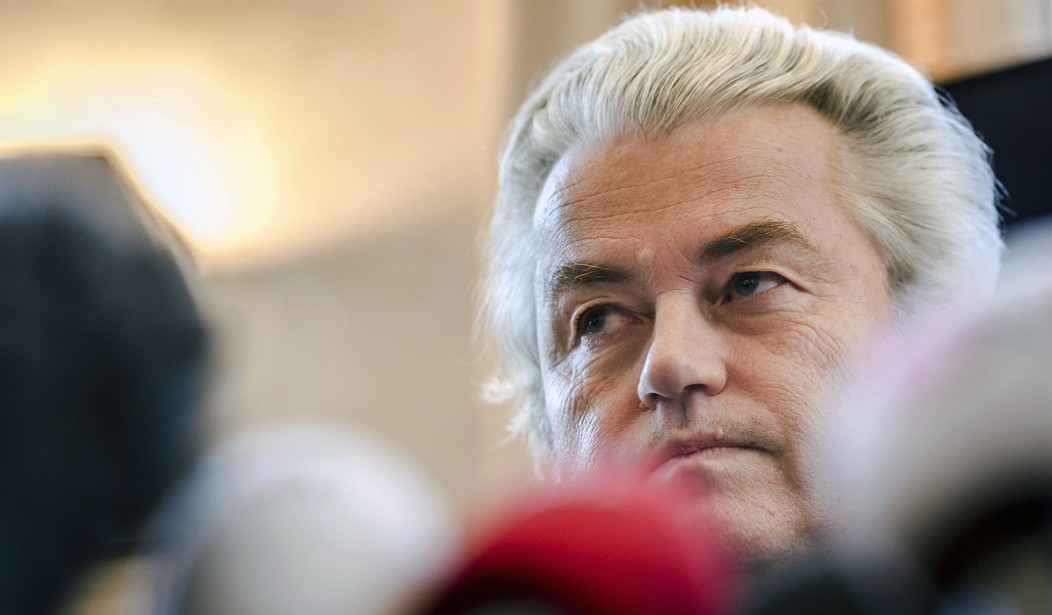Top News
Dutch Politician Geert Wilders Wins Major Victory According to Exit Polls

It looks like populist Geert Wilders has at least a chance of forming a government in the Netherlands after his party won more seats in parliament than any other party.
Dutch anti-EU far-right populist Geert Wilders, who has vowed to halt all immigration to the Netherlands, was set for a major victory in parliamentary elections on Wednesday, an exit poll showed.
Beating all predictions, the exit poll put Wilders’ Freedom Party (PVV) at 35 out of 150 seats, 10 seats ahead of the closest rival, former EU Commissioner Frans Timmermans’ Labour/Green Left combination. That margin was far greater than expected and appeared to be too great for the outcome to change…
Wilders’ rode a wave of anti-immigration sentiment, blaming a housing shortage on flows of asylum seekers and drawing on widespread concerns about the cost of living and the overburdened healthcare system.
Because this is a parliamentary system, you need a majority of 76 seats to govern. Since no single party ever gets that many, they are forced to form coalition governments. Wilders’ party has won seats in past elections but has never been asked to help form a governing coalition because his views on Islam were considered too extreme. Now that his party has won more seats than any other party he believes he has the right to form a government but that’s not guaranteed and already two parties have said they will not form a government with him.
The 60-year-old was in combative mood in his victory speech: “We want to govern and with 35 seats we will govern… 35 seats is an enormous compliment but an enormous responsibility too.”
The left-wing alliance under Frans Timmermans is predicted to come in second with 25 seats and he has said he will steer clear of any deal with the Freedom Party…
The original favourites to win the race, the centre-right liberals under new leader Dilan Yesilgöz, are heading for third place, ahead of a brand new centre party under whistleblower MP Pieter Omtzigt.
Both leaders congratulated the Freedom party leader on his success. Ms Yesilgöz insisted this week she would not serve in a Wilders-led cabinet, although she hadn’t ruled out working with him if she won.
Wilders will need the help of at least two more parties to form a government but in order to win those parties over he’s going to have to drop some of his more extreme demands, such as the banning of all mosques in the country.
In the run-up to the elections, Wilders has also sought to tone down some of his more divisive anti-Islamic rhetoric, hinting that he could drop his proposed ban on mosques and the Qur’an, a move that his critics branded opportunistic.
Instead, he has focused on growing economic concerns, vowing to solve the housing crisis and tackle inflation while portraying climate action as a new form of tyranny by the Hague…
…in an early triumph for Wilders, Pieter Omtzigt, the leader of the centrist NSC party, indicated that he was open to working with the PVV.
What seems certain is that after six elections, Wilders is closer than ever to power. “It will be hard work, but we are ready to govern,” he said as the first results trickled in. “This is the most beautiful day of my life politically.”
So, to sum this up, the left party and center right party say they will not form a government with Wilders. The center NSC party is willing to talk about it but Wilders would still need the support of someone else to have enough seats.
The other possibility is that Yesilgoz, new leader of the center-right VVD party, could try to form a government with the centrist NSC and several left-leaning parties.
Yesilgoz has other options if talks to form a hard-right coalition fail. She could seek to form a centre-right government with NSC and the Labour/Green Left combination led by former EU climate chief Timmermans.
With 69 seats this combination would not have a majority and would probably look to one of the smaller liberal parties.
But negotiations would be tough as Yesilgoz and Timmermans have campaigned heavily on the differences between their two parties. Omtzigt has indicated he could work with both.
In other words, there’s still a chance that Wilders could be shut out despite having the largest party in parliament. His ability to form a government will depend on how flexible he’s willing to be on some of his more extreme positions.
Read the full article here


















